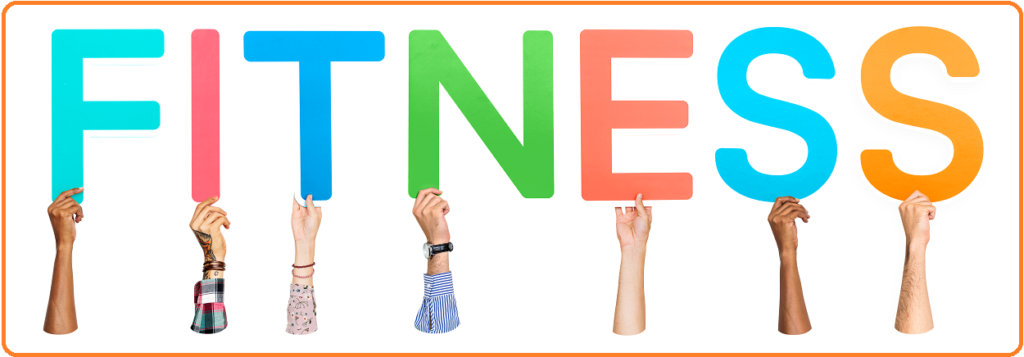Tagged: “forgiveness”
The fourteenth of 15 criticisms I see about forgiveness is this: The more people ask you to forgive, the more fuzzy you get about what is right and wrong. For example, if parents keep asking Sally to forgive her brother Sam for continually hitting her, eventually Sally may come to think that it is perfectly all right for Sam to keep hitting.
In our experience, true forgiveness helps people see the injustice more clearly, not more opaquely. As people break denial, examine what happened, and allow for a period of anger, they begin to label the other’s behavior as “wrong” or “unfair.”
The fifteenth of 15 criticisms I see about forgiveness is this: Forgiveness will lead to the opening of every jail cell door and letting out dangerous criminals. Therefore, forgiveness is a danger to society.
This argument confuses forgiveness and legal pardon. A person can forgive and see that it is important that a person, who remains a danger to society, stays in a correctional institution.
The Clash between Modern Western Culture and the Moral Virtue of Forgiveness
When surfing the Internet I sometimes run into ads for quick weight loss. Those ads run something like this: A guy, who may be ramped up on steroids, has his shirt off and he eagerly bites into a high calorie meal. He then says that he has a physical workout regimen that allows him to exercise a few days a week and retain a muscular physique. The exercise routine, for example, consists of about 5 push-ups, 8 sit-ups, some front lunges, a few jumping jacks, and then hit the showers because you are……..done.
In other ads, there are “before” and “after” photos, with the message that pill X will burn excess stomach cells overnight as you sleep…….and then presto! You have a new body.
The messages from these ubiquitous ads are these: Physical fitness is easy. Buy my fitness program or the pills I sell, and you will have gain without the pain.
What makes these ads almost humorous is the contrast between reality and fantasy, between what is needed for physical fitness or weight loss and what is offered. It is as if the striving and effort and perseverance are no longer necessary.

(Image by Rawpixel.com)
Such messages of gain-without-pain now are pervading the Internet for forgiveness. Take a look for yourself on the Internet. As you search for ways to forgive you will be met with advice to forgive, for example, in four easy steps. Learn to forgive in seven easy steps. Take your pick. The advice tends to range from about 2 to 9 sessions of psychological techniques…….and then presto! You have a new outlook on life and toward the one who hurt you.
Now, there is nothing wrong with a few steps to start a physical fitness program, as you get familiar once again with what a push-up is. In a similar way, there is nothing wrong with a few brief psychological techniques to introduce you to what it may be like to forgive those who hurt you deeply.
Yet, if you want true physical fitness, if you want true and deep forgiving, you will need to have the strong and good will to start, the rationality to know what you are facing, then practice, then persevere, then develop a love of the workout (physical or forgiveness workout) so that you grow in maturity toward either kind of workout. Both the achievement of physical fitness and forgiveness fitness require the exercise gym and the forgiveness gym, respectively.
When you are deeply hurt by others, when your heart is hurting, there is no such thing as the forgiveness pill. There is no such thing as the easy way. When others make you suffer from their unjust treatment, the way out is a different kind of suffering, which is growth in the heroic moral virtue of forgiveness. This new suffering is very different from the original suffering from unjust treatment because the forgiveness treatment leads to deep healing so that you can move on well with your life. The suffering from the effects of grave injustice, if you do not address these effects, may never end. The suffering from working on forgiving eventually ends. I want you to see the big difference between the two kinds of suffering. Only one of these offers the challenge of a new start in life as you become forgivingly fit.
Let’s hit the forgiveness gym, when deeply hurt by others, and start becoming forgivingly fit.

A Tribute to Our Director
For those of you who have read the International Forgiveness Institute’s newsletters, news items, blogs, and other features on our website, you have our long-time Director, Dennis Blang, to thank for that. He has tirelessly shown a love for the moral virtue of forgiveness. He has long shown the moral virtue of perseverance as he has worked to constantly improve the website for the sake of those who want to know more about forgiveness and to make a better world.
It was Mr. Blang who contracted with web developers to constantly improve the site. Over the years he added the Research page, the forgiveness curriculum page, the videos from three different international conferences, the research scales page with free forgiveness instruments for all who are interested, and much more. There are close to 3,000 entries in what is the most comprehensive forgiveness website in the virtual world. For his efforts, this website was awarded The Best Websites of 2022 by The Good Estate, a multi-thematic review website where users can find high quality information about all kinds of digital and physical products. TheGoodEstate is a project of Global Commerce Media.
forgiveness curriculum page, the videos from three different international conferences, the research scales page with free forgiveness instruments for all who are interested, and much more. There are close to 3,000 entries in what is the most comprehensive forgiveness website in the virtual world. For his efforts, this website was awarded The Best Websites of 2022 by The Good Estate, a multi-thematic review website where users can find high quality information about all kinds of digital and physical products. TheGoodEstate is a project of Global Commerce Media.
It was Mr. Blang who oversaw the development of our online education course, Forgiveness Therapy, and encouraged students as they moved forward in the book. I always was so impressed with the care he would take with each student, answering questions and clarifying correct answers when a student would inquire about the right answer.
I have been amazed at his breadth of knowledge about the state-of-the-art in the world regarding forgiveness. He frequently would pass news items and journal articles my way, asking if I had seen them. In the vast majority of cases, these were hidden gems worthy of our time and he was the first to find them, write about them, and then post information on them for you, the readers.
His care for the donors, who so wonderfully support the spread of forgiveness across the world, shows his love for forgiveness and his deep respect and appreciation for those who give of their own provisions for good. His emails to them always are sincere, supportive, and special.
His care for those who have taken the time to write to us is equally noteworthy. Those emails come to us from all over the world. Some people write in because they are hurting and need care. Mr. Blang has taken the time to care for them as he has suggested resources and professionals who can aid each one in their healing. He has treated each person as special, unique, and irreplaceable, giving the time and attention that each one needs. Only someone who has a love for forgiveness and a love for hurting people could sustain such an effort. Thank you for your caring, Mr. Blang.
Dennis Blang has been a gift to the world of forgiveness and for that I am deeply grateful. He now will be retiring, opening up new chapters in his life with his wife, Carol. We at the International Forgiveness Institute want to thank Mr. Blang for being a champion of forgiveness. Without him, we would not be as far down the road of forgiveness as we are now. Thank you so very much, Mr. Blang. Your work has been invaluable and we appreciate you perhaps even more than you realize.
![]()
My friend and I have a lot of conflicts and yet I do want to reconcile in the hope that these conflicts will be reduced. What would you suggest if such a reconciliation will be kind of rocky yet we both want to try?
I would recommend two points. First, are you both willing to forgive each other first so that you do not bring a lot of anger into dialogue with each other? Second, and if you are willing to forgive each other, what are the small steps each of you can take to help the other feel more trusting? In other words, what have you been doing to damage trust and can you take a small step in a better direction? Is your friend willing to do the same by taking small steps to build up your trust?



